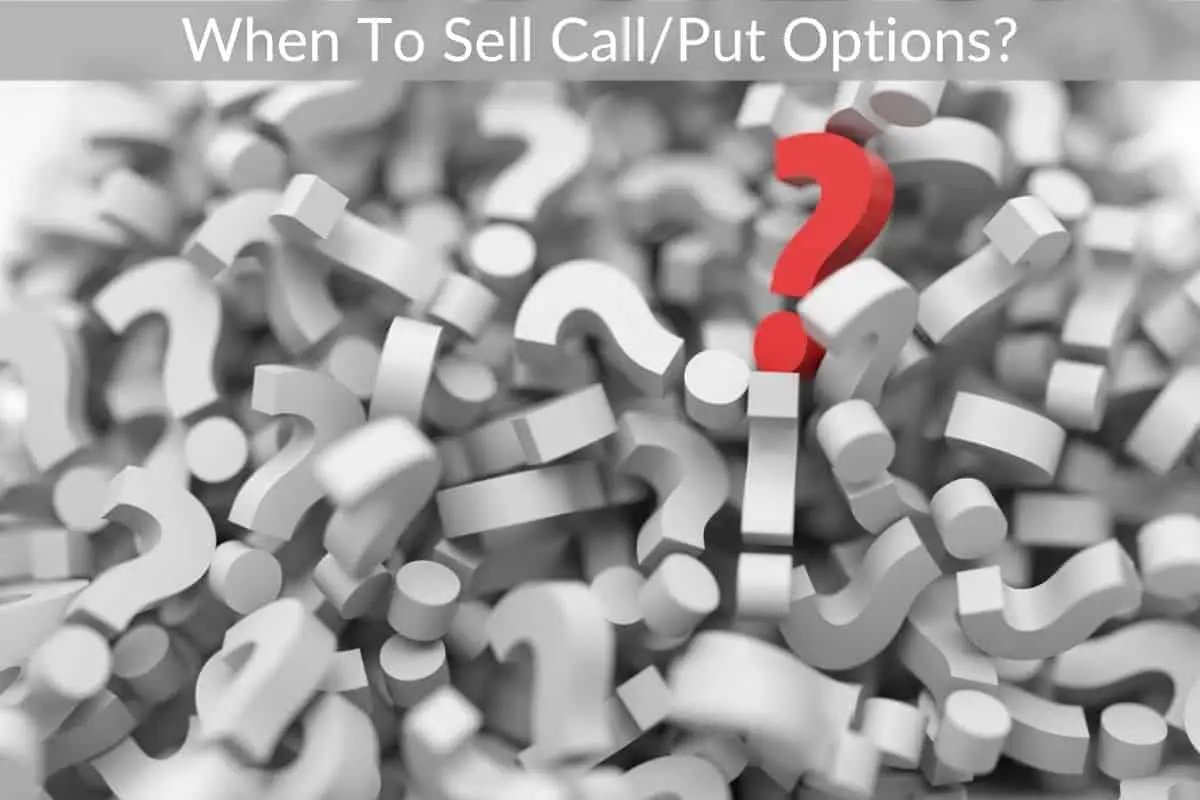Table of Contents
There are two ways to trade options: buying and selling. The buyer and the seller of any option have different expectations for the price of a stock or other security.
*This post may contain affiliate links. As an Amazon Associate we earn from qualifying purchases.
So what is the seller expecting stocks to do, and when should you sell call and put options?
You should sell call options when you think the price of a security, like a stock, will not increase much in the near future. As for put options, you should sell them if you are not expecting the security price to decrease below the strike price before the expiration date.
This article will explain when to sell call and put options and what you need to sell options. Then, I will have a list of resources that will teach you more about selling options.
Selling Call Options
You should sell a call option when you expect the price of a stock to stay the same or decrease in the near future. Call options give buyers the option to buy a stock, or other assets, at a given price from the option seller.
The seller sets the strike price, which is essentially the price point that you are not expecting the market price to rise past.
When someone buys a call, they are expecting the price of the call to increase. If the buyer is right and you are wrong, you will have to sell your stock at a value lower than what it is trading at.
However, if you are right and the stock price does not increase above the strike price, you will not have to sell your stock because the option will expire with no value to the buyer.
In choosing the expiration date, make sure it is close enough to avoid putting your investment at high risk. If the expiration date is too far away, there is a higher chance that the stock price will increase, and the buyer will exercise the option.
However, if the expiration date is too close, there is a smaller chance that anyone will buy the option (or pay much for it) because there is little time for the stock price to rise above the strike price. If you choose a close expiration date, you should sell the option at a lower premium so that someone will buy it.
Selling Put Options
Put options give buyers the option to sell their stock or other assets to the seller if the asset price decreases below the strike price.
They are best sold when you expect the price of a stock to stay the same or increase before the option’s expiration date. If the price doesn’t do what you expect and decreases, the option buyer might exercise the option.
When a put option is exercised, you as the seller have to buy the stock from the option buyer at the strike price. Since the current trading price is lower than the strike price that you are buying the stock, you are losing money on the option.
If you are right and the stock price does not fall below the strike price, the buyer will not exercise the option because they can sell the stock at a higher price on the market. If they exercised the option, they would lose money.
Instead, the option will expire and be worthless to them, and you, as the seller, get to keep the premium you made from selling the option and don’t have to buy the stock.
Like call options, you should not set the expiration date of your put option to be too close or too far away. If it is too far away, there is a higher chance that the security price will decrease below the strike price, and the buyer might exercise the option.
At the same time, you want the date to be far enough out that someone sees value in the option and wants to buy it.
How To Sell Options
You will need to use your brokerage account to sell options, calls, or puts. In order to do so, you will need to have enough money (or assets in other securities in your account) that can serve as collateral to back up your options if they are exercised, and you lose money on the trade.
If you are selling call options, you will need to ensure that you own the security you are selling the option against. If you do not, you will not have anything to sell to the call buyer if the option is exercised.
You need to have enough money to purchase the securities at the strike price if the option is exercised for put options. Otherwise, you will not be able to fulfill your part of the options trade, which is to purchase the security.
Learn More About Options
If you want to learn more about selling options, these books from will teach you the basics and more:
- Make Money Selling Options: This easy-to-follow book explains why you should sell options, what trading strategies you can use as a beginner, and more advanced strategies you can use once you are comfortable selling options. There are also tips for managing your portfolio and using options to supplement your other investments.
- The Complete Guide to Option Selling: This book that covers selling options will teach you why selling options is a successful investment strategy, how you can decide what options to sell, and tips to sell successfully and avoid common mistakes.
- Option Selling In A Profitable Way: The final book on our list, this will teach you how to have the most success when you sell options by using the right strategies, trading futures options, and what markets are best for selling your options.
Final Thoughts
You should sell call options when you expect the price of a stock or other security to decrease or stay the same until the option expires. You should sell put options if you expect the security price to increase or stay the same.
If your expectations for the price are wrong, you will have to buy or sell the stock if the buyer exercises the option, which could mean you lose money on the trade.

